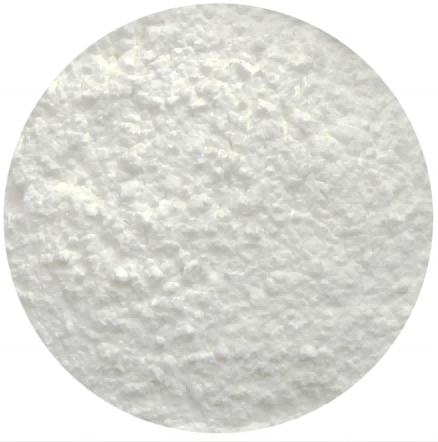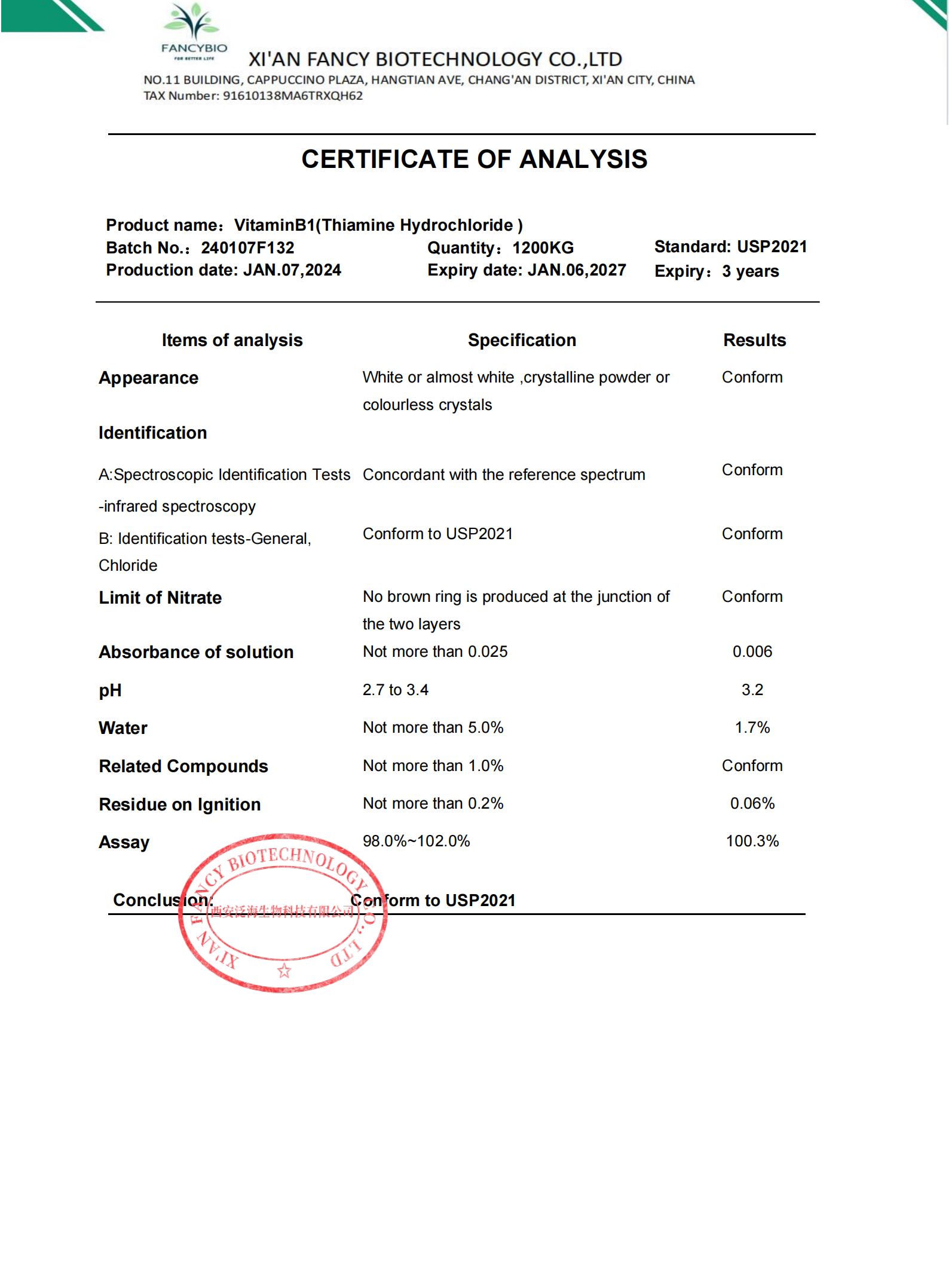La vitamina B1, también conocida como «tiamina» y «tiamina», es una de las vitaminas del grupo B.


Vitamina B1 CAS#59-43-8
La vitamina B1, también conocida como «tiamina» y «tiamina», es una de las vitaminas del grupo B.
La vitamina B1 es un polvo o cristales finos de color blanco con un punto de fusión de 248ºC (descomposición). Es fácilmente soluble en agua, ligeramente soluble en etanol, insoluble en éter, fenilhexano y cloroformo, y soluble en propilenglicol. Favorece el metabolismo normal de la glucosa y es necesaria para mantener el funcionamiento normal de la conducción nerviosa, el corazón y el tracto gastrointestinal.
Indicaciones: Adecuado para la deficiencia de vitamina B1, con la función de mantener el metabolismo normal del azúcar y la conducción nerviosa, también se utiliza en la dispepsia, neuritis y otros tratamientos auxiliares.
Funciones y papeles fisiológicos: La vitamina B1 desempeña el papel de coenzima en el proceso del metabolismo de la glucosa, y es necesaria para la descarboxilación oxidativa del piruvato. Los estudios han demostrado que el nivel sérico de vitamina B1 está reducido en pacientes con diabetes mellitus de tipo I, mientras que el nivel sérico de vitamina B1 es normal en pacientes ancianos con diabetes mellitus de tipo II. Desde el punto de vista de la estrecha relación entre la vitamina B1 y el metabolismo de la glucosa, la deficiencia de vitamina B1 causará en primer lugar la disfunción de órganos y tejidos con un fuerte metabolismo de la glucosa, como el sistema nervioso y la disfunción cardiaca.
También se ha observado clínicamente que la vitamina B1 es eficaz en la neuropatía, especialmente en la neuropatía dolorosa. La vitamina B1 mantiene la función normal de los nervios y del músculo cardiaco. Existen pruebas de que los pacientes con insuficiencia cardiaca congestiva suelen presentar carencias de vitamina B1 como consecuencia del uso de diuréticos. En un pequeño estudio doble ciego se observó que la vitamina B1 administrada por vía intravenosa a pacientes con insuficiencia cardiaca congestiva mejoraba su función cardiaca. Se obtuvieron resultados similares en otro estudio anterior sin grupo de control. La vitamina B1 también puede complementarse La vitamina B1 será útil para los bebedores de alcohol, las personas con enfermedad de Crohn, anorexia o esclerosis múltiple, y puede utilizarse como parte del apoyo nutricional sistémico. La vitamina B1 también puede utilizarse como tratamiento de la epilepsia, el dolor ulceroso y el dolor de fibras musculares, pero, por supuesto, esto debe confirmarse con más estudios.
Aplicación: La vitamina B1 es una de las vitaminas B, utilizada principalmente para la prevención y el tratamiento de la deficiencia de vitamina B1 y su causada por pediculosis o encefalopatía de Wernickes, pero también se utiliza para la neuritis periférica, miocarditis, dispepsia, insuficiencia cardíaca congestiva y otra terapia adyuvante; utilizado para la suplementación de vitamina B1: incluyendo quemaduras, fiebre, infecciones crónicas de larga duración en pacientes; síndrome de malabsorción con trastornos del sistema hepático y biliar (como alcoholismo) Acompañado de cirrosis), enfermedades del intestino delgado (como celiaquía, diarrea persistente, etc. ), gastrectomía, hipertiroidismo y pacientes en hemodiálisis; nutrición parenteral prolongada o ingesta de malnutrición causada por insuficiencia, trabajadores pesados, así como mujeres embarazadas, mujeres lactantes.

Our professional sales team are waiting for your consultation.